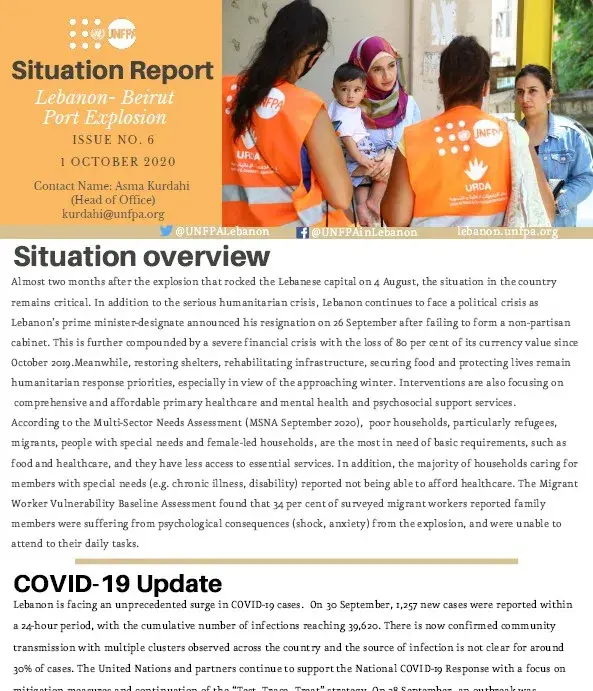Almost two months after the explosion that rocked the Lebanese capital on 4 August, the situation in the country remains critical. In addition to the serious humanitarian crisis, Lebanon continues to face a political crisis as Lebanon’s prime minister-designate announced his resignation on 26 September after failing to form a non-partisan cabinet. This is further compounded by a severe financial crisis with the loss of 80 per cent of its currency value since October 2019.Meanwhile, restoring shelters, rehabilitating infrastructure, securing food and protecting lives remain humanitarian response priorities, especially in view of the approaching winter. Interventions are also focusing on comprehensive and affordable primary healthcare and mental health and psychosocial support services.
According to the Multi-Sector Needs Assessment (MSNA September 2020), poor households, particularly refugees, migrants, people with special needs and female-led households, are the most in need of basic requirements, such as food and healthcare, and they have less access to essential services. In addition, the majority of households caring for members with special needs (e.g. chronic illness, disability) reported not being able to afford healthcare. The Migrant Worker Vulnerability Baseline Assessment found that 34 per cent of surveyed migrant workers reported family members were suffering from psychological consequences (shock, anxiety) from the explosion, and were unable to attend to their daily tasks.


